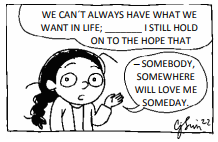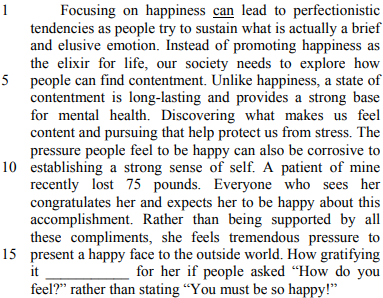Questões Militares
Sobre vocabulário | vocabulary em inglês
Foram encontradas 577 questões
Leia o texto, para responder à questão.
One pathway for converting explicit to implicit knowledge is suggested by skill acquisition theory, a branch of cognitive science studying how people develop skills. In this theory, knowledge is first seen to be declarative (conscious); then, through practice and the application of learning strategies, declarative knowledge becomes proceduralized so that it becomes automatic. Automatic processes are quick and do not require attention or conscious awareness. Many second/ foreign language learners memorize and practice vocabulary items or “chunks” of language such as greetings, idioms or collocations. Frequent practice in using these forms helps the language items to become automatic in the sense that the learner can use them quickly and unconsciously.
Pienemann (1989) proposes that second/ foreign language learners will not acquire a new structure until they are developmentallly ready to do so. If there were no connection between the development of explicit knowledge about a grammar point and the eventual restructuring of the unconscious linguistic system to accommodate the point in the learner’s interlanguage, then, indeed, grammar instruction would not be of much use. However, it has been suggested that there is a connection, so grammar instruction is ultimately useful. Further, practice of language points can lead to automatization, thus bypassing natural order teachability considerations.
(FOTOS, Sandra. Cognitive Approaches to Grammar Instruction.
In Marianne Celce-Murcia. 3rd ed. Teaching English as a second or foreign
language. 3rd edition. Boston, Massachusstes: Heinle&Heinle. 2002.
Adaptado274)
The second half of the first paragraph, starting “Many second/foreign language learners memorize and practice vocabulary”,
Leia o texto, para responder à questão.
The disjunction between method as conceptualized by theorists and method as conducted by teachers is the direct consequence of the inherent limitations of the concept of method itself. First and foremost, methods are based on idealized concepts geared toward idealized contexts. Since language learning and teaching needs, wants, and situations are unpredictably numerous, no idealized method can visualize all the variables in advance in order to provide situation-specific suggestions that practicing teachers need to tackle the challenges they are confronted with every day of their professional lives.
Not anchored in any specific learning and teaching context, and caught up in the whirlwind of fashion, methods tend to wildly drift from one theoretical extreme to the other. At one time, grammatical drills were considered the right way to teach; at another, they were given up in favor of communicative tasks. At one time, explicit error correction was not only favored but considered necessary; at another, it was frowned upon. These extreme swings create conditions where certain aspects of learning and teaching get overly emphasized while certain others are utterly ignored, depending on which way the pendulum swings.
The limitations of the concept of method gradually led to statements such as “the term method is a label without substance” (Clarke, 1983, p. 109), and that it has “diminished rather than enhanced our understanding of language teaching” (Pennycook, 1989, p. 597). This realization has resulted in a widespread dissatisfaction with the concept of method.
(Kumaravadivelu, B. Beyond Methods: Macrostrategies for language teaching. Haven and London: Yale University Press. 2003. Adaptado)
In the fragment from the second paragraph – These extreme swings create conditions where certain aspects of learning and teaching... –, the bolded word can be correctly replaced by:
“In a number-only count, the additional 500 thefts or homicides would result in the same overall number of crimes, yet clearly the impacts are disparate”.
Choose the option that correctly corresponds to the blank spaces.
“Remember that where ________ courageous soldiers, _________ eternal glory.”
There are three areas where our behaviour can directly influence our students’ continuing participation: goals and goal setting; learning environment; interesting classes.
(J. Harmer, The practice of English language teaching. 4th ed. Essex: Pearson Longman, 2007. Adaptado)
The task proposed in the last paragraph of the text on ChatGPT illustrates the following motivational behavior on the part of teachers:
Text 1 A11-II
"Click!" That's the sound of safety. That's the sound of survival. That's the sound of a seat belt lockling in place. Seat belts save lives and that's a fact. That's why I don't drive anywhere until mine is on tight. Choosing to wear your seat belt is as simple as choosing between life and death.Which one do may be going 100km/h or faster. That car is zipping down the road. Then somebody ahead of you locks up his or her brakes. You don't have time to stop. The car that you locks up his or her brakes.
Some people think that seat belts are uncool. They think that seat belts cramp their style, or that seat belts are unconfortable. To them, I say, what's more uncomfortable? Wearing a seat belt or flying through a car, of skidding across the road in your jean shorts? Wearing a seat belt is both cooler and more comfortable than the alternatives. Let's just take a you can hop around the car and slide in and out of your seat easily. That sounds like a lot of fun. But, you are also more likely to die or suffer serious injuries. If you are wearing a seat belt, you have to stay in your seat. That's no fun. But, you are much more likely to walk away unharmed from a car accidente. Hmmm... A small pleasure for a serious pain. That's a tough choice. I think that I'll avoid the serious pain.
Internet: <www.agendaweb.com> (adapted).
Text 1 A11-II
"Click!" That's the sound of safety. That's the sound of survival. That's the sound of a seat belt lockling in place. Seat belts save lives and that's a fact. That's why I don't drive anywhere until mine is on tight. Choosing to wear your seat belt is as simple as choosing between life and death.Which one do may be going 100km/h or faster. That car is zipping down the road. Then somebody ahead of you locks up his or her brakes. You don't have time to stop. The car that you locks up his or her brakes.
Some people think that seat belts are uncool. They think that seat belts cramp their style, or that seat belts are unconfortable. To them, I say, what's more uncomfortable? Wearing a seat belt or flying through a car, of skidding across the road in your jean shorts? Wearing a seat belt is both cooler and more comfortable than the alternatives. Let's just take a you can hop around the car and slide in and out of your seat easily. That sounds like a lot of fun. But, you are also more likely to die or suffer serious injuries. If you are wearing a seat belt, you have to stay in your seat. That's no fun. But, you are much more likely to walk away unharmed from a car accidente. Hmmm... A small pleasure for a serious pain. That's a tough choice. I think that I'll avoid the serious pain.
Internet: <www.agendaweb.com> (adapted).

Read the text and answer the question.
The pursuit of happiness can end in pain
Maggie Mulqueen, psychologist

Adapted from https://www.nbcnews.com/think/opinion/suicide-studentathletes-happiness-contentment-rcna27992